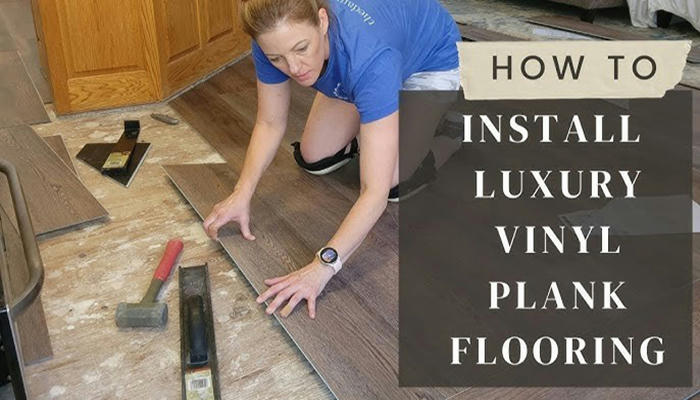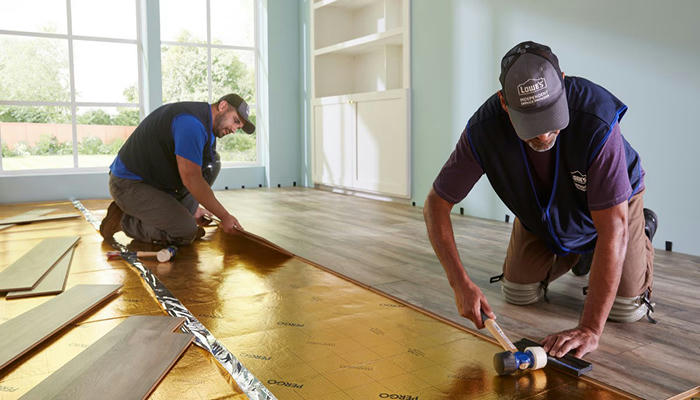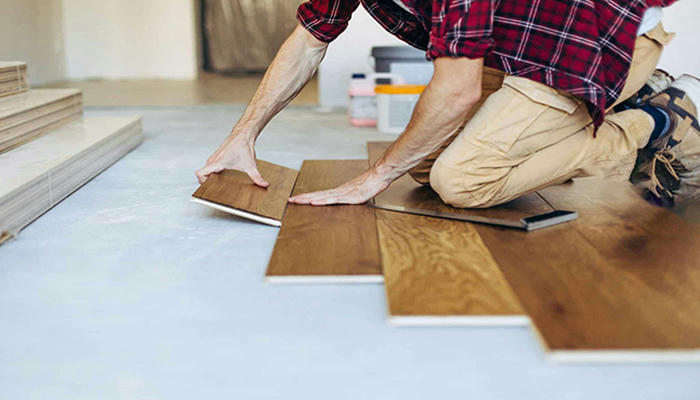How to Future-Protect Your Flooring Installation Career in the United States
According to the latest data from the U.S. Department of Commerce, the industry will exceed $123 billion in 2023, with high-end custom flooring services growing at a rate of 45%, far exceeding the average level of the overall home improvement market. Driven by the popularity of smart homes and the tightening of environmental regulations, this traditional blue-collar profession is transforming into a golden track with both technical content and commercial value.

Job description: The transformation from "bricklayer" to "space designer"
Modern floor installers are no longer simply "flooring", but require a compound talent who comprehensively applies architecture and material science:
•Precision surveyor: Use a laser rangefinder to complete 20㎡ room 3D modeling in 30 seconds (error <1/32 inch)
•Material magician: Flexibly match 6 major materials such as solid wood, composite wood, stone, etc. according to the customer budget (100-500/㎡)
•Space planner: Optimize indoor traffic lines through floor texture design (case: A restaurant in New York has increased customer flow by 20% after renovation)
•Environmental expert: Master formaldehyde emission detection technology (≤0.03mg/m³ standard)
Salary and benefits: "Floor economics" where technology determines income
Data from the U.S. Bureau of Labor Statistics show that the salary of certified floor installers shows a significant gradient:
•Apprenticeship period (0-2 years): 18-25/h → Annual income: 36,000-50,000 yuan
•Junior technician (3-5 years): 28-38/h → Annual income: 56,000-80,000 yuan
•Expert (more than 5 years): 45-65/h + customized service commission → Annual income: 100,000-150,000+ yuan

Required skills: Create a "hexagonal warrior"
Core hard skills
•Measurement master: Proficient in tape measure, laser rangefinder, 3D scanner operation (error control ≤ 0.1%)
•Material science expert: Familiar with the characteristics of 12 mainstream floors such as oak, walnut, marble (including parameters such as moisture content, wear resistance coefficient, etc.)
•Installation process: Master 8 core technologies such as lock-type installation, adhesive laying, and old floor renovation
•Tool master: Proficient in using electric planer (speed control ± 500rpm), hot air welding gun (temperature accuracy ± 5℃)
Soft skill matrix
•Communication art: Make customers The customer's demand for "modernity" was transformed into a "dark matte brick + metal edge" design solution
•Time management: Complete 80 square meters of complex parquet flooring within a 10-hour time limit in a high-end real estate in Los Angeles (error rate <0.5%)
•Crisis handling: Solve sudden problems such as hollow tiles and warped wooden floors within 30 seconds (customer complaint rate <2%)
Certification ace
•NAILORS certification: the most authoritative floor installation certification in the United States (pass rate is only 31%)
•CRI certification: Environmentally friendly installation qualification issued by the Carpet and Flooring Association (annual review fee $300)
•OSHA 30-Hour: High-risk operation safety regulations (mandatory requirement)
How to get this position: A five-year guide from apprentice to boss
Education path
•Community college: Complete the $1,500/semester "Floor Installation Technology" course (must have basic woodworking and material science)
•Online training: Coursera's "Advanced Floor Design" special course (certification price $499, including 3D design software practice)
•Apprenticeship program: Accumulate 200 hours of experience through Home Depot's "Flooring Apprentice" program
Qualification leap
•Primary certification: NAILORS Level 1 ($300 exam fee, 6 weeks of preparation)
•Advanced certification: NAILORS Level 3 ($1,200 exam fee, 2 years of practical experience required)
•Master certification: NAILORS Elite ($2,500 exam fee, limited to practitioners with more than 5 years of experience)
Network building
•Industry associations: Join the American Flooring Institute (FFI) and participate in 3 industry exhibitions each year
•Professional networking: Build a network of 500+ building material suppliers and interior designers on LinkedIn
•Local alliances: Join the "Golden State Flooring" craftsman club, sharing customer resources

Real case: From homeless to flooring tycoon
Tony Chen's career trajectory
•2015: Unlicensed handyman, $150 a day, helping people lay tiles in Queens, New York
•2018: Passed NAILORS Level 1 certification, contracted independent residential projects (unit price $80/㎡)
•2021: Founded "Urban Floor Studio", focusing on high-end commercial space (signed Macy's flagship store)
•2023: The company's annual revenue is $2.8 million, the number of employees has expanded to 15, and the individual holds 60% of the shares
The next decade: Three major waves of change in the flooring industry
Material revolution
•Biological-based floor: Mycelium composite material (annual market size $1.2 billion)
•Self-repairing floor: Microcapsule technology automatically repairs scratches (has passed ASTM testing)
•Temperature-controlled floor: Graphene coating achieves room temperature regulation (Disneyland pilot project)
Technology upgrade
•AR installation system: through Microsoft HoloLens real-time projection installation guide (40% efficiency improvement)
•AI material selection platform: input floor plan to automatically generate 3D floor design plan (92% accuracy)
•Drone survey: BIM modeling of roof photovoltaic panels and floor integration (error <0.01 meters)
Market expansion
•Overseas opportunities: participate in the "Belt and Road" Chinese enterprises' overseas projects (Saudi Arabia orders surged 200%)
•Sub-sectors: Medical clean floor (special for operating rooms, annual demand $800 million)
•Second-hand market: refurbished second-hand house floor premium reaches 30% (data from the National Association of Realtors)
